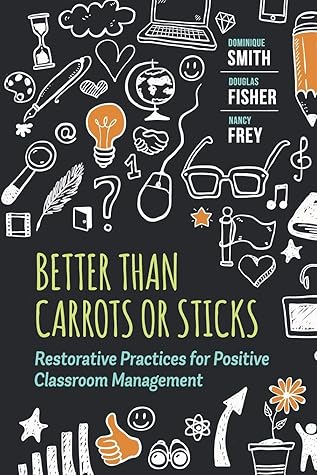More on this book
Community
Kindle Notes & Highlights
Read between
January 7 - February 12, 2023
Simply said, it's harder for students to act defiantly or disrespectfully toward adults who clearly care about them and their future.
punishment thwarts the development of empathy in children, who learn instead to look out for themselves regardless of their effects on others.
proactive, systematic, and transparent. They treat all students with respect, build trust with students, have an optimistic outlook, and, most importantly, accomplish these things with intentionality.
When students care about the relationships they have with others, they work to keep those relationships healthy and to repair any damage to them.
if lessons are highly engaging and relevant to students' lives, students will behave regardless of the quality of the student-teacher relationships.
collaborate with their peers using academic language.
guided instruction designed to address gaps in students' understanding, and independent learning tasks that allow students to try out what they have learned.
Research shows that students like school better, have more fun, and learn more when they have opportunities to engage in meaningful interactions with their peers (City, 2014).
A self-regulating child will suppress impulsive behaviors, delay gratification, and think about alternatives to and consequences for his or her actions whether or not an adult is nearby.
The instruction students receive should be rigorous and attainable, and students should be given many opportunities to interact with peers as they learn new content.
When students recognize each other, they like school better and tend to behave in ways that are respectful toward the community, resulting in safe, productive learning


